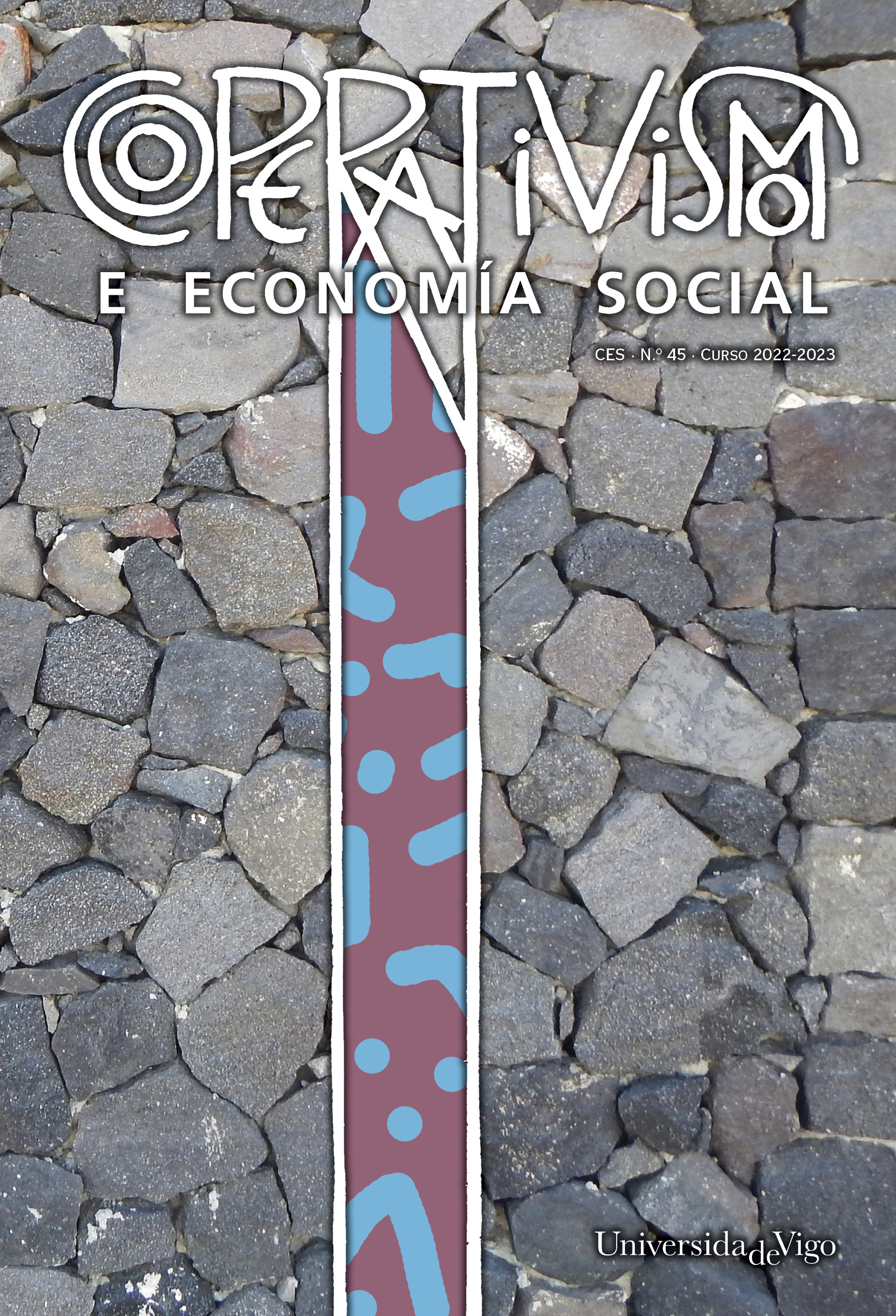THE CONSEQUENCES OF WRONGFUL TRADING FOR THE COOPERATIVE’S DIRECTORS, PARTICULARLY THE PROHIBITION FROM PERFORMING MANAGEMENT FUNCTIONS AND THE LOSS OF CREDITS IN THE INSOLVENT COOPERATIVE
DOI:
https://doi.org/10.35869/ces.v0i45.5172Palabras clave:
cooperatives, insolvency, wrongful trading, directorsResumo
The applicability of the Portuguese legal regime to cooperatives may raise specific questions, particularly with regards to the effects of wrongful trading for their directors. Namely, the disqualification of the cooperative director and the loss of any credits he may have towards the cooperative are to be considered, because of the specificities of their implementation in the context of cooperatives.
In Portugal, cooperatives are subject to insolvency and to the Portuguese insolvency legal regime (Código da Insolvência e da Recuperação de Empresas:
CIRE). But the applicability of this regime to cooperatives may raise specific questions, particularly with regards to the effects of wrongful trading for their
directors.
Under Portuguese cooperative law (Código Cooperativo: CCoop.), one of the consequences of wrongful trading is, inevitably, the loss of mandate of convicted board members. But there is no eligibility requirement relating back to this, so nothing seems to prevent an individual previously convicted of wrongful trading from taking on these functions in a cooperative. Under Portuguese insolvency law (Código da Insolvência e da Recuperação de Empresas: CIRE), there may be a prohibition from performing management functions for a period that can range from 2 to 10 years (because of wrongful trading). In this case, the prohibition safeguards the position of the cooperative towards the election of a previously convicted individual during that period. But how can we solve the problem in any other cases? And can this conviction also constitute grounds for exclusion of a member from the cooperative? If so, on what specific grounds and under what terms?
There is yet another problem concerning the consequences of a wrongful trading conviction of a director under Portuguese insolvency law, in the case of a
cooperative insolvency. When a director has been convicted of wrongful trading as part of the insolvency of the cooperative they manage, one of the consequences of such conviction is - pursuant to the CIRE - the loss of any credits they might have on the insolvent cooperative. Since they are mostly simultaneously a cooperator, what is the scope of this conviction with regards to any credit rights they might have as a cooperator, upon the dissolution and liquidation of the cooperative?
In this study, following an analysis of the legislative solutions provided in Portugal, we try to provide an answer to these questions. As there are no specific answers in the doctrine and no case-law treatment, we will considerer the basic principles and rules of the insolvency law as well as the fundamental cooperative principles.




